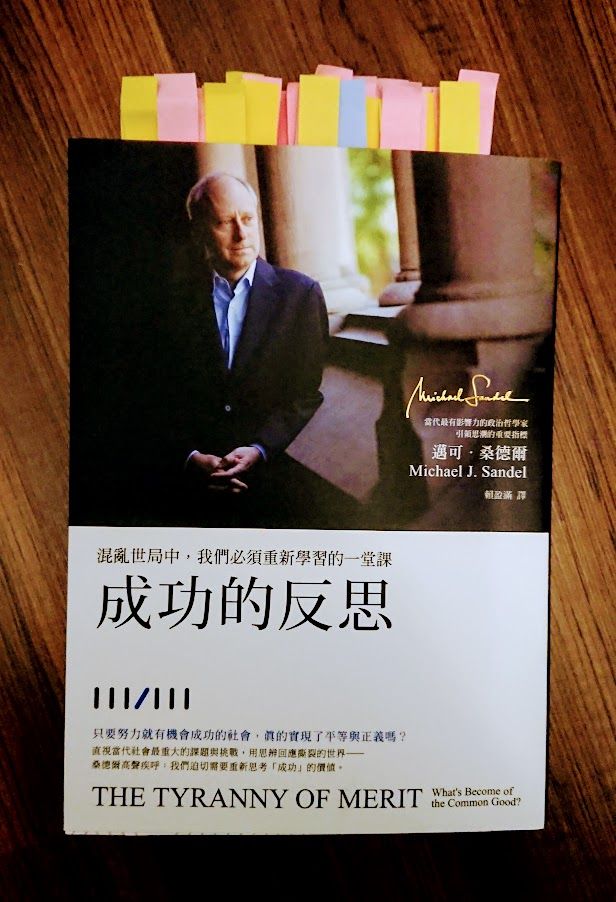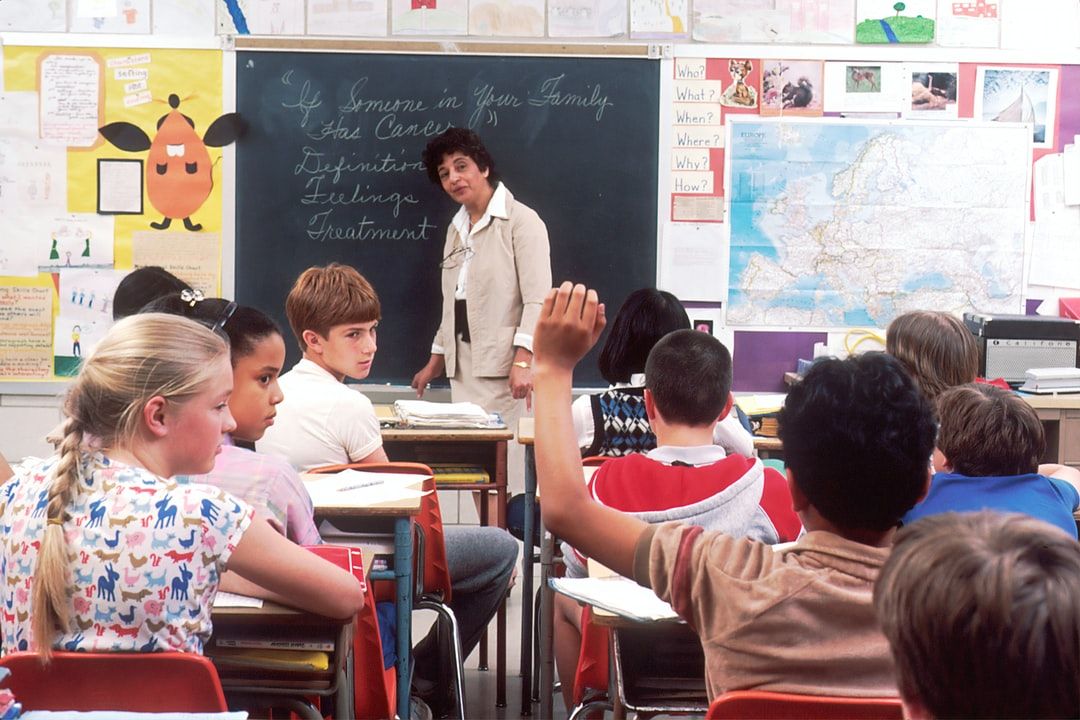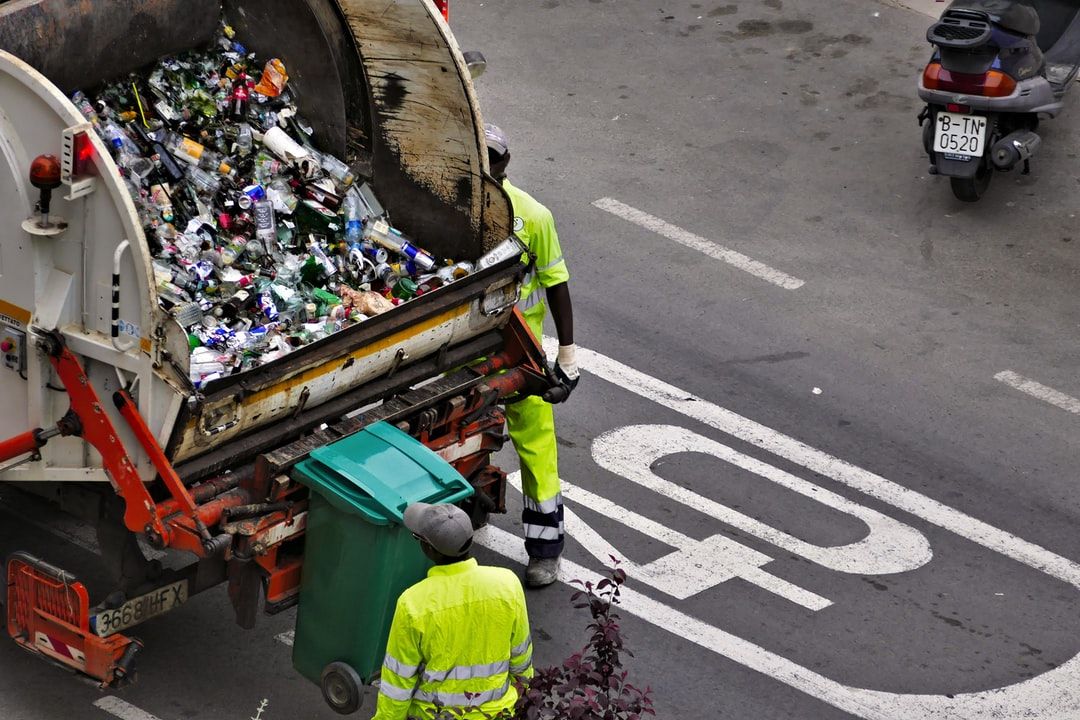
半導體外商的小小螺絲釘,遊走於廢青與社畜之間。熱愛閱讀,喜歡透過書本探索外在、內化自我。希望藉由書寫打開與世界交流的一扇窗。 個人部落格:https://maxjamesread.com/
"Successful Reflection": The trap of the supremacy of virtue, what kind of society do we need?

Our society seems to be divided as never before.
From the election of Trump, Brexit, and even the resurgence of the far-right in Europe, similar movements have emerged around the world, including Taiwan. With the rise of populism and severe polarization and opposition in society, it seems that the two sides of the fracture will never have the possibility to communicate and focus.
So what went wrong?
Today's book "Reflections on Success" is to answer this question. Author Michael. Sandel is a well-known scholar. The "Justice" course taught by Harvard has accumulated more than 15,000 people, and it has been broadcasted as an online public course, which has repeatedly set records.
In this book, he directly points to the root cause of the rupture: the supremacy of talent and virtue. Because society embraces such a concept of success, praising effort and talent, it divides the world into a divided society of winners and losers.
In this experience, I will first explain what a society where virtue is supreme, then discuss the problems of such a social value, and finally propose possible solutions.
【What is a society where virtue is supreme?】
First of all, to explain the concept of the supremacy of virtue, the book sums it up as follows:
Having everyone compete solely on hard work and talent will allow the market to reward based on talent. In a society where opportunities are truly equal, the market will reward the people justly.
That is to say, in an ideal society where talents are supreme, there is no innate class, and everyone has equal opportunities. Success will not be because you have a rich dad, but you have to work hard on your own. Only you can decide whether you are worthy of respect and wealth.
Such values are quite mainstream, and even before I read this book, I also had a longing for such a society. And now we are in, although such an ideal has not yet been fully realized, but at least it is much better than the past aristocratic hereditary or caste system, where the lower class will never turn over, isn't it?
But the virtuous society is not as beautiful as imagined. Let's take a look at the status quo of the virtuous society that everyone thinks is more "fair".

【Current Situation of Talented Society】
(upward flow illusion)
The ideal of a virtuous society is: Destiny is up to you, everyone is responsible for themselves, and only talent and dreams can limit how high you can climb.
But sadly, the world doesn't work that way, not even close.
For example, the book points out that only 20 percent of Americans who were born into families in the bottom quintile ended up in the top quintile. That is to say, although the society upholds the concept of success that talent comes first and hard work can turn around, the cruel thing is that the flow is not as obvious as imagined.
[Education Flip Illusion]
You might say that this is not a question of the supremacy of talent and virtue, and you should find a way to make mobility possible. How to do it? The answer for many may be: education.
But is education really the solution to inequality?
As things stand, the answer may be no. The book mentions that two-thirds of the students at the Ivy League schools come from the top 20 percent of the nation's income earners. At Princeton and Yale, there are more students from the nation's top 1 percent of income earners than from the bottom 60 percent.
American higher education is like an elevator that most people ride on the top floor.
- "Reflections on Success"
In fact, SAT test scores are highly correlated with family wealth. One in five students from families earning $200,000 a year have SAT scores over 1,400 percent, but that rate drops to only 50 percent if they come from families that don't earn $20,000 a year. one.
This also confirms my concern in the article "Deliberate Practice" . Even if the acquisition of ability only depends on hard work, the advantages of being born in a wealthy family are still huge.
[The problem is the system? ]
You may think that the current system still needs to be improved, and the idea of virtue first is still fine. It is normal to think this way. In fact, even conservatives and liberals who think in opposite directions agree that virtue is supreme. It's just that the two sides have different ideas on how to achieve such a society.
Liberals believe that affirmative measures (such as adding points to disadvantaged groups) are needed to achieve a society of virtue and virtue; while conservatives believe that these affirmative measures violate the original intention of pure ability first, and will lead to injustice.
But Sandel believes that the two sides are actually getting the point wrong, and that the idea of virtue is more fundamentally flawed.

[Fundamental flaws in a society of virtue and virtue]
[Pay attention to mobility inequality]
The big problem with virtue-oriented values is that they focus on class mobility rather than equality. To put it simply, it does not think that the widening gap between the rich and the poor is a problem, as long as the rich and poor children exchange status due to differences in talents and virtues. In terms of inequality, it has a limited gap with caste or aristocratic hereditary system.
In a way it's even worse.
Because in a virtuous society, a person's success depends on hard work and talent, which will make winners feel that their success is well deserved. After all, they are indeed outstanding in their ability and work hard to have such a position, right? On the other hand, the losers under this system will fall into self-denial, feeling that they are just not working hard enough and lacking talent, and they will end up in this field.
In the age of hereditary aristocracy, if you are a noble, you will know that you are just lucky. Even if you are a serf, although your life is hard, at least you will not feel that it is your fault that you are inferior.
In other words, the rift created by the virtuous society may be deeper.
To make matters worse, the winners of the meritocracy system are also very miserable. In the past, nobility could easily inherit hereditary status and occupy the upper class, but although hereditary status still exists, elites still have to struggle hard to maintain their own class. The book mentioned that the proportion of depression, substance abuse, and anxiety disorders among teens from wealthy families with high education is actually the highest among teens in the United States.
And the author believes that it is this kind of mentality of winners and losers that leads to the populist counterattack. Winners feel that they deserve it and don't know how to be sympathetic to losers; losers feel that they have been left behind by society and move towards populism.
[Talent is actually luck]
Furthermore, having a talent is actually largely a matter of luck rather than personal merit. Is it really deserved to get market overpayment for such luck?
Taking it one step further, having the talent that the market favors is also luck. The book cites Lebron James as an example. In this era of basketball talent, he can make tens of millions of dollars a year, but if he lived in the middle ages that valued art, he might not be paid as much as a muralist.
[Remuneration does not equal contribution]
In addition, does an industry that the market is willing to give high remuneration really contributes to this society? The book takes the album "Breaking Bad" as an example. The protagonist uses his chemical knowledge to make drugs, and he gets paid far more than his salary as a high school teacher, but isn't the value of a teacher inferior to that of a drug dealer?
This reminds me of the period of pneumonia, when many governments closed their cities and closed their business, leaving only some necessary industries to maintain the functioning of society, such as cleaning, nursing, etc. However, ironically, these "important" industries are mostly low-wage industries.

【What is the solution? 】
In the last paragraph, we talked about the many contradictions of talent and virtue, including the fact that class mobility is not significant, education has not been turned over, and what is even worse is that we have created winners who are scarred and deserved, and those who are disappointed in society. loser.
Is there any salvation for such a divided society? Next, let's take a look at what solutions the author proposes to solve this problem. First of all, let’s go back to the education that everyone talks about most often.
[Reflection on the nature of education]
The current education cannot be reversed. Instead, it creates a tragic situation that makes the winners anxious and the losers discouraged. In view of this, the author proposes a rather shocking idea: lottery admissions .
Sandel believes that a person's talent is actually difficult to estimate. Instead of using test scores or various abilities to select, it is better to use a lottery to decide who can be admitted. Winners in such a system don't feel like they deserve it.
Of course this is only one way to screen the machine for unplugging. The book goes a step further and argues to reduce the importance of admission to prestigious universities, open up four-year colleges to more people, and strengthen community colleges, vocational systems, and vocational training.
I find this part a bit old-fashioned. Taking the situation in Taiwan as an example, although our university admission rate is not low, it seems that we still cannot get rid of the shadow of the supremacy of talent and virtue. I think the point might be to rethink the nature of education. It just happened that there was a super crooked video recently discussing this issue, and I put it up for your reference.
https://www.youtube.com/watch?v=4ZBc0et3fXo
Perhaps, education should not serve for flipping, but to enable everyone to follow their own interests and develop appropriately, and to rely on these skills to live a stable life in society. However, I am still thinking about the specific method, and you are welcome to discuss with me if you have any ideas.
[Diversified Political Participation]
Readjusting the way people participate in society may also be the solution to the fractured society. The book mentions that although half of the U.S. population is employed in blue-collar jobs, less than two percent of congressmen come from these industries.
The losers who were left felt that the political elite couldn't understand their feelings, and even worse, the "smart" politicians were reluctant to jump down and communicate with what they saw as a rabble. For example, in the face of the polarized society after Trump took office, Obama said that such differences were caused by people's inability to reach a consensus on the basic "facts" and believed that they lacked "correct" information.
However, in politics, persuasion and discussion are an important part. Democracy should allow citizens to participate effectively. Only by discussing and thinking together can we find consensus on major public issues and achieve common interests.
There is no reason to think that nurses and plumbers are inferior to management consultants for the skills of democratic discourse.
- "Reflections on Success"
[Reshaping the concept of success]
But fundamentally, to solve the problem of the supremacy of talent and morality, we still have to start with values and rethink what kind of society we want.
Assuming you know in advance that you will be born into an upper or lower family, if you were born rich, which society would you want to live in? If you were born poor, which society would you choose?
- "Reflections on Success"
As deduced above, a society where virtue is paramount only creates winners and losers. The current mechanism looks down on people who can't study and negates their worth with low pay in the market. To change this, winners must first understand that success is not deserved. For the losers, help rebuild the dignity of work.
Only diehard laissez-faire liberals would insist that casino tycoons contribute a thousand times more to society than pediatricians.
- "Reflections on Success"
However, there are not many specific guidelines in the book, only some ideas such as basic income are mentioned. As far as I'm concerned, it's still important how the recognition is given financially. You can't always say to a cleaner, "Although your salary is not high, you have contributed a lot to the society." This is just asking for a beating...

【Summarize】
in conclusion. First of all, the seemingly fair system of the supremacy of talent and virtue is actually riddled with holes, inequality and class still exist, and even more winners and losers are created; the solution may be to let students get rid of the shadow of talent and virtue through education. In addition, political participation must leave behind elitism, so that more people's needs can be heard and consensus can be found together. In the end, you have to get rid of the rut of virtue and morality, get rid of the idea that the winner deserves, and restore the work dignity of the loser.
In fact, the English name of the book, The Tyranny of Merit, is the tyranny of talent and virtue, and the problem is simply and rudely. However, the title of the book in Chinese is also very well translated, which is in line with the purpose of the book, otherwise it may not sell well (laughs).
This is an enjoyable book to read. During the reading process, my thoughts were constantly challenged and stimulated. If we insist on the shortcomings, it is probably that the specific measures are a little too weak. But in general, the argument of the supremacy of talent is very convincing to me, because it is quite consistent with my life experience.
In "The Brain Likes to Learn This Way" , I mentioned that I was tortured by monster classmates in high school. I was quite cynical at the time, and I often thought God was unfair, why was my brain so bad. So when I was admitted to Jiaotong University, I was actually quite at ease, because I knew very well that I had to put in more effort than my classmates who were admitted to National Taiwan University.
This kind of thinking changed when I entered elementary school as a substitute. Seeing many children from disadvantaged families in a remote village made me suddenly realize that with my not-so-good brains, I was able to finish the four majors all the way, but in fact a large part of it was supported by luck.
Since then, I have been thinking about the possibility of this society changing from time to time. And this book can be said to open up a new direction for what I have been thinking about for the past few years.
Of course, the book's expectations are ideal. Sandel hopes that a democratic society can rebuild social bonds and civic connections, and by understanding that we are all in the same boat, we can work together to create a society where we all work together and prosper, and where everyone is prosperous and dignified.
But how exactly? After reading this book, my answer is still vague. In a way it's just more certain of my luck.
But this reminds me of what Liu Anting asked in his graduation speech at Chengda University : "What do I want to do with this luck?"
If there are more people in this society, as Liu Anting said, find a place worth working hard, let go, and plant a little luck of your own. Maybe the world could be a little different.
Believe me, the luck you plant will not be in vain, it will sprout, it will bear fruit, and it may even grow into a forest.
- Liu Anting
I think, to write here, is the luck I planted. May this luck and innocence grow into a forest!
Like my work?
Don't forget to support or like, so I know you are with me..
Comment…